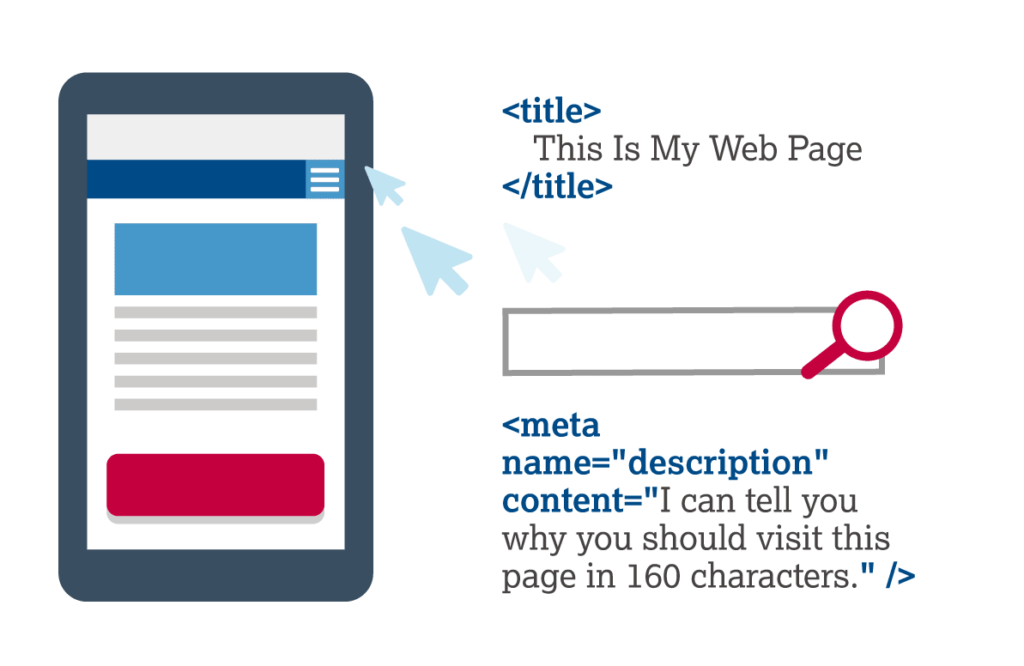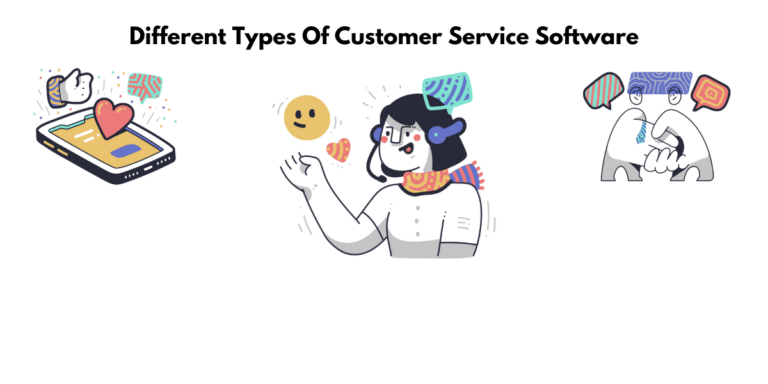10 Benefits of Having Effective Metadata Management
Metadata management for SEO
Metadata management is the administration of data that describes other data.
It involves establishing policies and processes that ensure information can be integrated, accessed, shared, linked, analyzed, and maintained to the best effect across an organization.
Metadata is generated whenever data is created, acquired, added to, deleted from, or updated.
The goal of metadata management is to make it easier for a person or program to locate a specific data asset, which requires designing a metadata repository, populating it, and making it easy to use information in the repository.
Why is metadata important?
Metadata is important because it provides organizations with critical information about their data, such as where it is stored, how it is used, and who has access to it.
Metadata also helps organizations assess data lineage, establish a common business language, determine data quality, capture institutional knowledge, and reuse and repurpose data assets.
Furthermore, metadata management helps data professionals answer important questions, such as which datasets are best for analytics and which systems are involved in fulfilling customer orders.
Additionally, metadata management enables data engineers to be more efficient by clarifying relationships between data and mapping out data flows.
Ultimately, metadata management helps companies improve data quality, comply with regulations, and advance their data operations.
How does metadata management affect SEO?
Metadata management can have a big impact on SEO.
By providing accurate, up-to-date, and consistent data, search engines can better index websites and thus improve their visibility in search results.
Using a logical metadata taxonomy, website owners can ensure the most relevant search terms are used when tagging content assets.
This helps search engines more accurately determine their relevance and rank them accordingly.
Additionally, by ensuring data is organized and tagged correctly, website owners can prevent search engines from being overwhelmed with duplicate or irrelevant content, improving search engine performance and visibility.
In short, well-managed metadata helps create a strong foundation for SEO success.

How metadata is formed
Metadata is formed both automatically and manually.
Automatically generated metadata can come from specialized metadata management tools or through data capture or extraction, which is the harvesting of metadata across different asset landscapes and data sources such as the following:
- business applications
- databases
- data warehouses
- data lakes
- BI tools
- webpages
This metadata provides useful information for search engines, which use it to “understand” the page’s content and how it should be ranked in search results.
Metadata also helps organize and easily retrieve information, which is important for data science and digital repositories.
The benefits of having effective metadata
Metadata management is an essential element of data organization, providing structure for categorizing, storing, and accessing data.
It has far-reaching implications, enabling organizations to utilize their content assets better, improve marketing ROI, enhance customer experience, and ultimately, increase team productivity.
Good metadata management can also streamline the search and retrieval process for teams such as sales and data scientists, granting them more time and energy to devote to activities that generate revenue and uncover insights for decision-making.
1. Better organization and access to data
By cataloging and organizing data assets, businesses can better identify and understand their data, resulting in faster and more accurate decisions.
This leads to improved customer acquisition and retention and increased revenue and profits.
Additionally, effective metadata management helps organizations meet regulatory and compliance requirements and facilitates data governance and enablement.
Effective metadata also makes it easier for users within an organization to interact with data and allows for faster transformation efforts such as digitization and data modernization.
2. Improved data quality
Effective metadata can improve data quality by increasing accuracy, completeness, interoperability, and consistency.
Accurate metadata ensures that the data is factual and precise, while complete metadata ensures that all possible attributes are recorded.
Interoperability is achieved by selecting metadata standards that make the data comparable and integrable across different systems.
Consistency is maintained by following the selected metadata schemes or standards throughout all datasets.
3. Increased efficiency of business processes
Effective metadata management increases the efficiency of business processes by allowing users across different functions to access the right data assets easily.
This enables them to spend less time on manual labor, such as cleaning data, fixing inconsistencies between data source formats and systems, or searching for the right digital asset. Instead, they can focus on activities that generate revenue, uncover insights for decision-making, deliver business insight, and support key business decisions.
Metadata management also helps organizations leverage their data to its fullest extent by ensuring that all data is consistent, accurate, and of the highest quality. In short, effective metadata management is essential for data-driven organizations to stay competitive and maximize the ROI from their data assets.

4. Increased transparency and accountability
Effective metadata management increases transparency and accountability by allowing organizations to quickly locate, identify, and classify data assets.
This helps ensure data governance compliance and that the data is used responsibly and ethically.
Metadata also increases data quality, which simplifies data use and analysis.
By having this information readily accessible, organizations can better understand their data and ensure it is being used appropriately.
5. Improved analytics capabilities
Effective metadata allows businesses to quickly and easily access the data they need to gain insight into their operations and customer base.
This type of data provides a comprehensive view of the underlying customer behavior, product usage, and trends in the market.
This data can inform decisions, optimize customer experiences, and improve analytics capabilities.
With effective metadata in place, businesses can easily identify patterns, trends, and insights that can be used to make well-informed decisions and take appropriate action.
This enables them to make data-driven decisions quickly rather than relying on gut feeling or intuition.
This helps to ensure that the decisions made are based on accurate and reliable data, leading to improved analytics capabilities.
6. Increased usability of data
Effective metadata increases data usability by providing a consistent and organized way to access and understand data across different parts of the organization.
Metadata lets users quickly search for and pinpoint specific data assets, saving time and resources.
This allows them to focus on tasks such as sales that generate revenue or analytics and compliance that ensure data is being used properly.
With well-defined metadata, everyone in the organization understands terms, definitions, and data sources, leading to better decision-making, improved performance, and greater data accuracy.
7. Increased accuracy of reporting
Effective metadata can significantly increase reporting accuracy by providing a central enterprise marketplace with powerful tools and features designed to appeal to different user groups – from data scientists to analytics specialists, regulatory executives, and security and privacy specialists.
With a high level of automation, companies can capture end-to-end data lineage, identify sensitive data, understand usage and access patterns, and more.
This makes it easier to ensure data accuracy and integrity and provides actionable insights that can be used to make informed decisions.
This can result in more profitable growth through cross-selling and upselling of insurance policies and quicker time to market for new products and coverages.

8. Improved collaboration and information sharing
Effective metadata management helps improve collaboration and information sharing by providing a common language and structure for teams to use when accessing and sharing data across the organization.
Having a centralized location for data classification allows all teams to access the same information and reduces confusion or duplicated efforts.
9. Improved data security
Having effective metadata can improve data security by providing the basis for identifying, defining, and classifying data and allowing organizations to monitor systems performance and automate job processing.
This can help organizations meet regulatory and compliance requirements, such as the Health Insurance and Portability Accountability Act (HIPAA), General Data Protection Regulation (GDPR), and The California Consumer Privacy Act (CCPA).
10. Enhanced compliance and regulatory compliance
Effective metadata enhances compliance and regulatory compliance by providing the basis for identifying, defining, and classifying data.
This ensures the proper regulatory controls are applied to corresponding data components, helping organizations meet regulations like HIPAA, GDPR, and CCPA.
Metadata management also automates the scanning and identification of data to locate Personally Identifiable Information (PII) and allows metadata exports to authorized downstream applications.
With data quality standards in place, metadata management enables organizations to keep track of and responsibly use their data to comply with changing laws and regulations.
Types of metadata
Metadata is a type of data that provides additional information about a resource.
It can come in many different shapes and flavors, carrying additional information about where the resource was produced, by whom, when it was last accessed, and more.
While it is not as important as once was for SEO success, it still plays an important role in helping Google understand your website and its contents.
There are three main types of metadata: descriptive, administrative, and technical.
- Descriptive metadata – This is the most important for SEO and provides information about who created a resource and what it is about. This can be done using semantic annotation, which assigns specific meanings to data elements to make them understandable by machines.
- Technical metadata – On the other hand, there are technical metadata, including file types, size, creation date and time, and compression type. This metadata is often used for digital object management or interoperability purposes.
- Descriptive metadata – This includes attributes that help identify and locate information, such as title, author, abstract, and keywords. This type of metadata is important for search engine optimization, as it helps search engines understand what the page is about and how it should be ranked in search results. Descriptive metadata must also attract website users, making it a powerful marketing tool.
Structural metadata describes how compound objects are organized, such as how pages are ordered to form chapters.
It also documents the relationship between assets, which is important for SEO because search engines use it to understand the context of a page.

Examples of metadata
Metadata is a powerful tool for managing and organizing digital assets, providing context and structure to the information.
Let’s talk about the different metadata examples below!
Meta title
A meta title is the title of a web page that appears on the search engine results page and is used by the search engines to help determine the relevancy of the webpage to a particular query.
It is an important element of metadata as it helps attract users to visit the website and plays a crucial role in SEO as it helps search engines understand the page’s content and how it should be ranked in the search results.
Meta description
A meta description is a type of metadata that briefly summarizes a web page’s content.
It usually comprises a few sentences and appears underneath the page title in search engine results.
This useful feature helps searchers quickly identify whether the page is relevant to their needs, and it also attracts users to click on the link.
Additionally, meta descriptions are important for SEO purposes, as they provide search engines with information about the page content and help to determine how it should be displayed and ranked in search results.
Image “Alt” text
Image alt text is an HTML attribute applied to image tags that provide a text alternative for the image.
Screen readers use it to provide an accessible image description, and search engines can also use it to understand the page’s content better.
The text should briefly describe the image and give the user context when the image is not visible.
Relevant content
Relevant content is content that is properly tagged and organized in such a way that it can be easily discoverable by both internal and external users.
It is enabled by a well-managed metadata repository which provides structure to the enterprise data and helps to quickly locate the content that matters to customers and end users.
Metadata is also essential for this process as it organizes content into buckets and categories and powers search tools to make finding the desired content much easier.
Using a content taxonomy or classification framework helps to bring structure and organization to the digital content.
Having a system of policies and processes in place helps control and enhance the metadata terms.
By using a strategic approach to create and curate metadata, companies can ensure that their content is organized, findable, and shareable throughout its lifecycle.
Authoritative links
Authoritative links are sources of information that are considered to be reliable and trustworthy.
Examples of authoritative sources include the following:
- regulatory guidelines
- government directives
- internal documents
- external literature
Authoritative links are important in defining business terms and concepts as they provide the context for each term.
This helps ensure that business terms are used consistently and that any conflicts between terms and definitions are addressed.
Additionally, authoritative links allow data quality practitioners to prioritize sources in case of a conflict so that the higher-priority source is used.
In conclusion
Metadata is one of the most important aspects of on-page SEO.
It provides information about a page that search engines can use to help rank the page.
While other factors contribute to SEO success, metadata is still an important part of the puzzle and will likely continue for the foreseeable future.
Put, metadata is still an important part of SEO.
However, it is no longer the only thing you must focus on to improve your website ranking.
You also need to have good-quality content and follow good website practices.
By doing so, you will achieve better results with your SEO efforts.
- E-commerce Shipping Solutions: The Best Shipping Software for Fulfillment - October 12, 2023
- 10 Benefits of Having Effective Metadata Management - April 2, 2022






